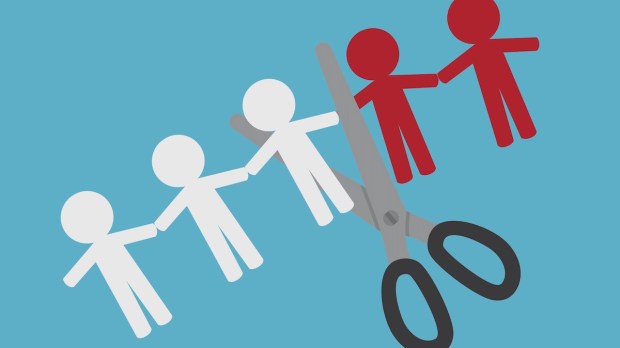According to the Code of Canon Law of the Latin Church (Canon 751), “schism is the refusal of submission to the Supreme Pontiff or of communion with the members of the Church subject to him.” Schism, explains Pierre Chaffard-Luçon, doctor of canon law, “is first and foremost a state of the baptized faithful, a situation in relation to the Church, and only then a sanction.”
Refusal to be in communion
The essential criterion for judging schism?
“A schismatic refuses to be in communion,” answers the canonist. It’s not simply a question of acts of disobedience to the bishop or pontiff, or of criticism. “In order for a fault to qualify as this offense, there must be an intention to undermine communion, and this intention must be embodied in indisputable acts.”
Schism is one of the three “crimes against the faith,” along with heresy (the obstinate denial of a truth of faith) and apostasy (the total rejection of the Christian faith).
In history, for example, as the expert points out, “the breaking point with the Orthodox in the 11th century was schismatic (recognition of papal primacy), while that with the Protestants in the 16th was heretical (rejection of transubstantiation, the sacrament of confession, etc.).”
However, rejection of dogma and discipline sometimes mix. Schism, the canonist warns, presupposes “full freedom” and “full awareness.” He adds, “You can’t be schismatic without wanting to be. A madman, for example, is not schismatic even if he says schismatic things.”
A trial to determine schism
Since a reform by Benedict XVI in 2010, a bishop is competent to judge the offense of schism in the first instance. The Dicastery for the Doctrine of the Faith is the judge of appeal, and can also act as judge of first instance in the event of direct action before it, as is the case for Archbishop Carlo Viganò, former papal nuncio to the United States.
The DDF — the only dicastery with a tribunal — initiates a canonical trial, whose judges are the members, presided over by the prefect.
Procedural deadlines vary from case to case. “If the schismatic act is public and incontestable, the sanction of schism is immediate, latae sententiae. If the case is more complex, the Church will first seek to discuss it, which may take longer.”
In dealing with schismatic cases, as with heretics, “there is always a pastoral approach that resembles a form of diplomacy, of negotiation … Not to relativize the situation, but to understand the criticism made by the member of the faithful and to enlighten them in return. The Church has always taken the time to talk to the person and point out the error,” explains Pierre Chaffard-Luçon.
The Church and the person accused of schism or heresy can debate and come to an agreement.
At present, for example, 400 priests of the Syro-Malabar Church who are in serious liturgical disagreement could find themselves in open rupture with Rome. Nonetheless, the Curia, which has already sent several pontifical representatives to India over the years, is continuing the dialogue for the time being.
In the case of the Lefebvrist schism in 1988 and the Society of St. Pius X, the Vatican exchanged views until there was “no more room for maneuvering, when bishops were ordained in defiance of Roman decisions.”
Consequences of schism
If, in the end, the canonical process concludes that schism has been established, the declaration may be individual or pronounced against a community. Such a declaration by the Dicastery for the Doctrine of the Faith entails excommunication.
The “schismatic” is then immediately excommunicated and thus forbidden access to the sacraments, except at the point of death.
Where applicable, the guilty party also loses his or her ecclesiastical office. There are also other consequences, not directly penal, such as the refusal of a Catholic burial in the absence of repentance.
Pierre Chaffard-Luçon points out that this is first and foremost “a medicinal punishment designed to lead the faithful to resipiscence,” i.e. to acknowledging their fault. It may be accompanied by expiatory penalties, some of which are mentioned in Canon 1336: prohibition or order to remain in a given place or territory; deprivation of a power, office, charge, right, privilege, faculty, favor, title, or mark of distinction; penal transfer to another office; dismissal from the clerical state…
Return to communion
If the guilty party makes amends, the Church lifts the excommunication. For example, in the case of excommunication, Peter Abelard, in the 12th century, made statements that did not conform to doctrine, but “out of love for the Church, he submitted to the sanction, stopped teaching them, and died in full communion with the Church,” recalls the canonist.
The same applies to schismatics. In this sense, the door is left open for Archbishop Viganò, who can choose to maintain his statements or retract them. For the future, the Church may decide to reissue an invitation to the prelate — who failed to appear at the June 20 hearing — or to make a judgment by absence.
At the end of the trial, a public statement is “not obligatory but highly probable,” says the expert, given that the former nuncio has broadcast his positions in the media, including on the subject of his summons to court.



